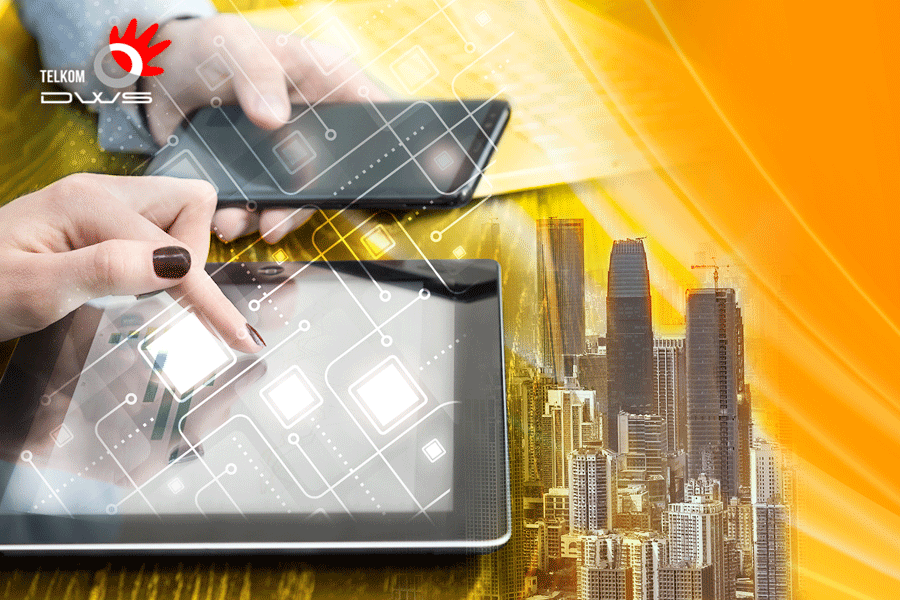08 March 2021
Peran Visualisasi Big Data di Smart City
Mengadopsi data besar dalam manajemen kota dapat membantu administrator meningkatkan kualitas hidup bagi warga. Seperti yang kita ketahui, arus lalu lintas, limbah, polusi dan masalah keamanan terus-menerus mengalihkan masalah jika kita tinggal di kota-kota besar.
Oleh karena itu, penambangan data dari tempat umum dapat membantu administrator mengubah strategi manajemen mereka dari sektor-sektor ini secara real-time.
Misalnya, dapat membantu kota Jakarta mengarahkan lalu lintas ketika ada penyumbatan tertentu di persimpangan tertentu. Atau ketika ada tumpukan sampah besar di lingkungan tertentu, truk tambahan dapat dikerahkan di sana hanya untuk hari itu.
Seperti yang telah kita ketahui, data besar sangat besar dalam hal varians, ukuran, dan skalanya. Oleh karena itu, menyajikan data dengan cara yang sederhana, dapat dimengerti, dan cepat dipahami di antara kaum urban yang sibuk dengan hiruk pikuk sehari-hari mereka menjadi penting.
Mungkin inilah alasan mengapa visualisasi menjadi bentuk presentasi data yang paling populer. Terutama dalam grafik dan ikon yang pikiran manusia dapat dengan cepat memahami.
Visualisasi juga menyederhanakan kompleksitas dan keragaman pola dan tren yang terus berubah.
Misalnya, pengemudi dapat dengan mudah mengubah rute mereka saat mereka melihat di papan reklame atau aplikasi ponsel cerdas mereka bahwa persimpangan tertentu saat ini sedang macet.
Pada saat yang sama, orang-orang yang bekerja di departemen sanitasi dapat dengan mudah memutuskan, ke bagian mana dari kota mereka harus mengirim truk pick-up tambahan hanya untuk hari itu.
Bagaimana kota-kota melakukannya
Kota pintar semakin menggunakan visualisasi dan kontrol data yang canggih untuk menganalisis aliran data, mengoperasikan, memantau, dan mengendalikan sistem, menurut liveearth.org.
Kegiatan pengawasan ini terutama diarahkan untuk melindungi lingkungan, infrastruktur kota, investasi dan warga, sementara pada saat yang sama berusaha untuk meningkatkan kesejahteraan dengan mengurangi kemacetan lalu lintas, kesepian, polusi dan limbah seperti yang telah disebutkan.
Sesuai dengan premis di atas, solusi Live Earth telah benar-benar membantu berbagai manajer kota dan eksekutif departemen untuk melihat dan merespons secara real-time terhadap perubahan konstan melalui visualisasi.
Penasaran dengan bagaimana beberapa kota telah berhasil menerapkan visualisasi untuk membuat kehidupan kota yang memicu sakit kepala agak lebih baik? Lihatlah contoh-contoh ini:
Meningkatkan infrastruktur angkutan umum
Populasi kota terus bertambah besar setiap hari. Di tengah tantangan ini, operator transit dapat menggunakan visualisasi data kota pintar untuk memantau kepadatan atau kepadatan armada dan platform tertentu.
Meminimalkan dampak bencana kota
Di Jakarta, selalu ada masalah tahunan dengan banjir. Selain itu, kota-kota seperti Singapura juga dapat menangani badai hujan yang sering terjadi.
Visualisasi dapat membantu warga melindungi diri mereka sendiri jika mereka berada di tempat kerja atau perlu tetap melanjutkan kegiatan mereka di tengah bencana berbahaya seperti itu.
Pengelolaan limbah masyarakat
Seperti yang sudah kita ketahui, Indonesia memiliki banyak bank sampah tetapi dengan pemanfaatan yang kurang optimal. Bagian dari masalahnya adalah tidak adanya orang yang dapat menghubungkan titik-titik di antara pemulung dan pendaur ulang, antara lain.
Visualisasi dapat membantu menghubungkan pendaur ulang mengidentifikasi bank sampah yang kurang dimanfaatkan dari mana mereka dapat sumber bahan baku mereka.
Pada tahun 2021, untuk membuat kehidupan Jakarta lebih baik bagi semua orang, terutama di tengah masa-masa sulit pandemi COVID-19, sekarang saatnya kita mengubah paradigma kita tentang informasi publik ke yang lebih divisualisasikan menggunakan data besar.
Jika Anda ingin mempelajari lebih lanjut tentang Big Data dan implementasinya, Anda dapat mengunjungi situs web kami di https://mycarrier.telkom.co.id/big-data
Apakah informasi ini membantu?
